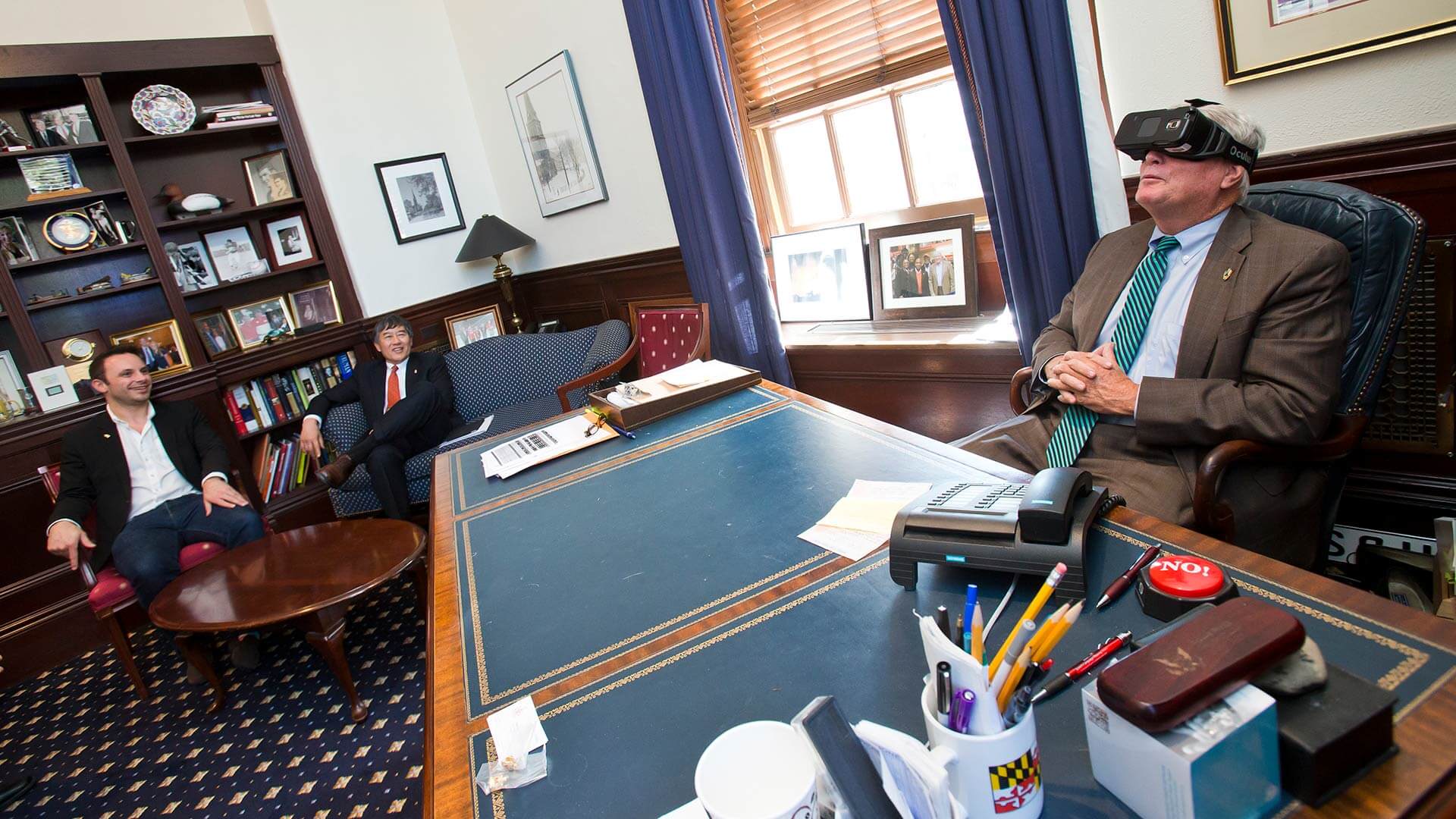- April 09, 2019
- By Liam Farrell
The death of House Speaker Michael E. Busch turned the traditionally chaotic and celebratory end of the Maryland General Assembly’s 90-day legislative session into one of mourning and questions yesterday.
Busch, a Democrat from Annapolis, had been in the House of Delegates since 1986 and its leader for the last 16 years, making him the longest-serving speaker in state history. He had undergone a liver transplant in 2017 and heart surgery last year, then was hospitalized last week with pneumonia before his unexpected death on Sunday.
It was a shock for a government that has had remarkable consistency in its top legislative posts. Busch, who prioritized public education and the environment and led the way in tough battles to abolish the death penalty and allow same-sex marriage, was a pillar of Maryland’s power structure and a mentor and confidante for generations of state politicians.
Maryland Today spoke with Stella Rouse, UMD associate professor of government and politics and director of the Center for American Politics and Citizenship, about Busch’s legacy and what this means for the state.
What’s the political effect of having a long-running leader die?
You lose continuity and predictability. During the time he has served, it has been a steady ship in terms of knowing what to expect, and what the leadership is going to be from session to session, and what his M.O. is on how to run the assembly and how to run the entire legislature. There’s extra continuity in having (Maryland Senate President Thomas “Mike”) Miller and Busch together for so long in how the legislature ran and how they have worked together.
Is Maryland unique in how long the legislature was led by the same two people?
Generally speaking, legislatures don't have that kind of continuity for various reasons. In most cases, both branches are not controlled by the same party. Not only do you have that in Maryland, but you also have the longevity of that continuity. So it's pretty unique.
Mike Busch is being remembered today as a leader who emphasized public education and the environment. How did he help define Maryland politics?
He was an educator before he got into the Maryland legislature, and so he brought personal experience and interest in the topic of education throughout his career. He’s also very well known for taking up issues related to preserving the Chesapeake Bay. But he’s also known for his stances on common-sense gun control and on making health care more affordable for as many Marylanders as possible. He was also a leader on legalizing same-sex marriage. He was very progressive and really did put Maryland the forefront of a lot of these issues before they were nationally accepted.
What is Mike Busch's legacy?
He had an ability that we don't see in a lot of politicians these days to reach across the aisle and build consensus. His Republican colleagues very much respected him even if they didn't agree with him all the time. They very much thought that he was trying to push Maryland forward and had all the best intentions even if they disagreed on policy. The progressive policy proposals that he pushed oftentimes put Maryland as a leader on some of these issues rather than as a follower.
Topics
People